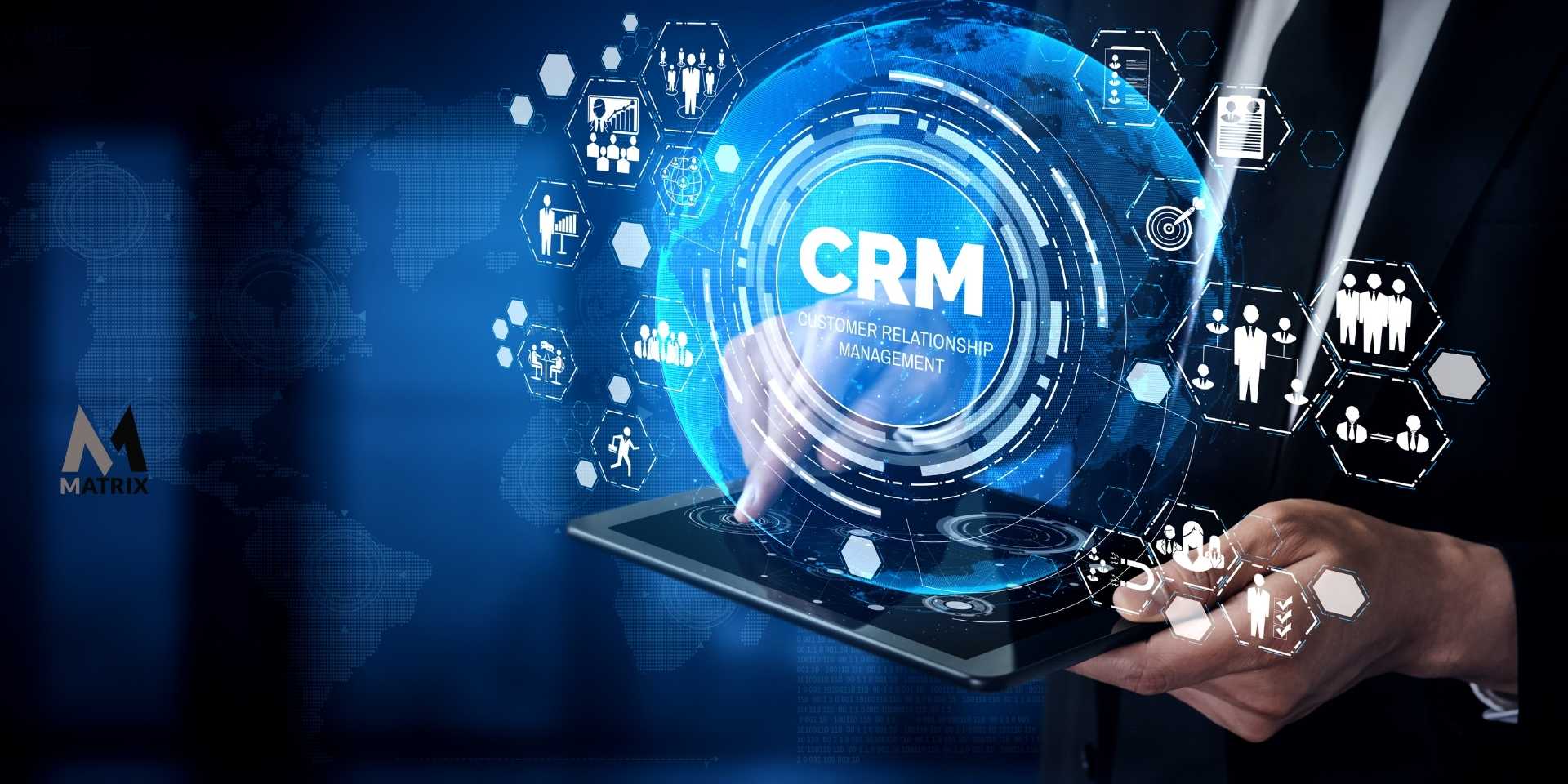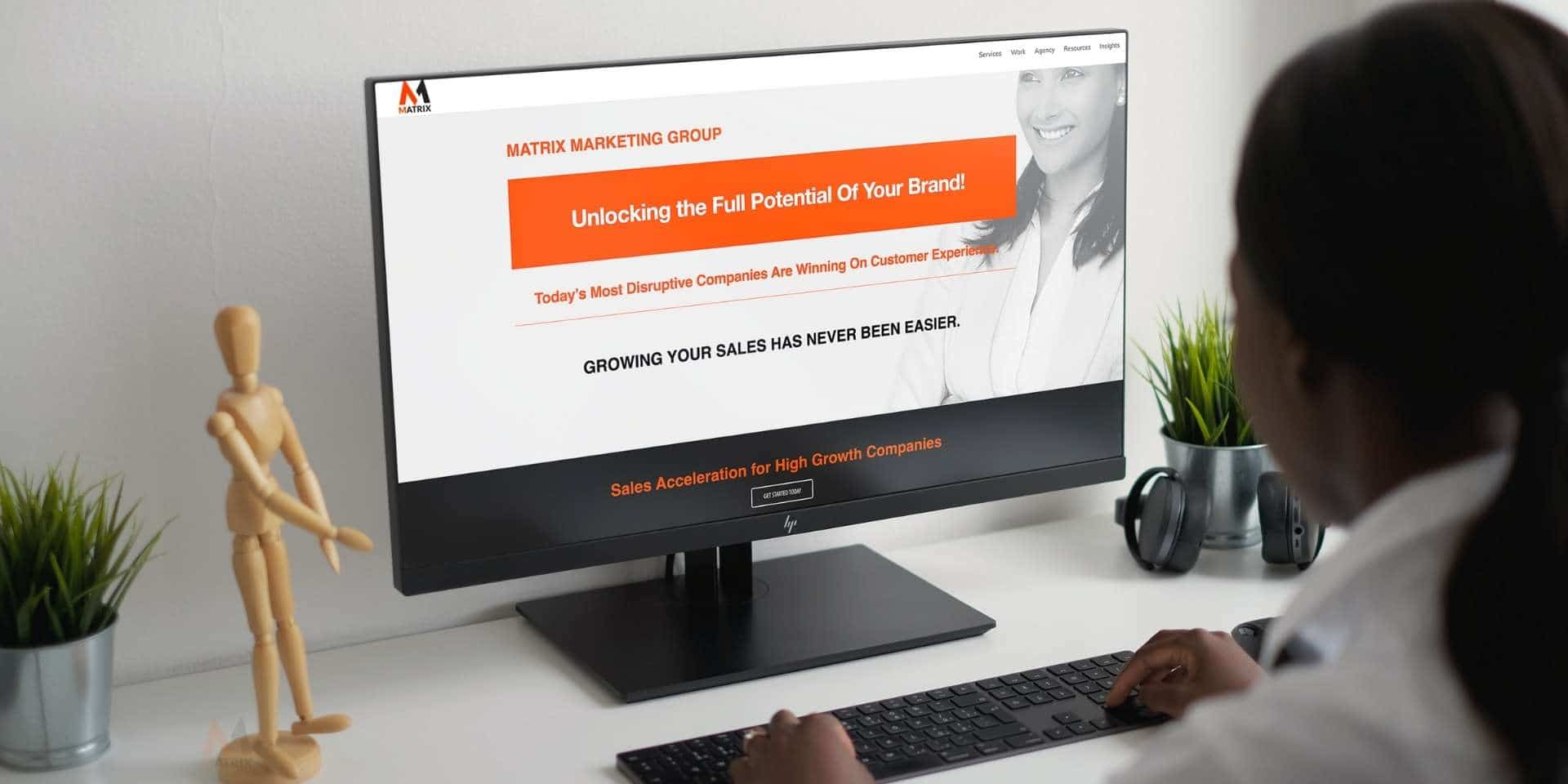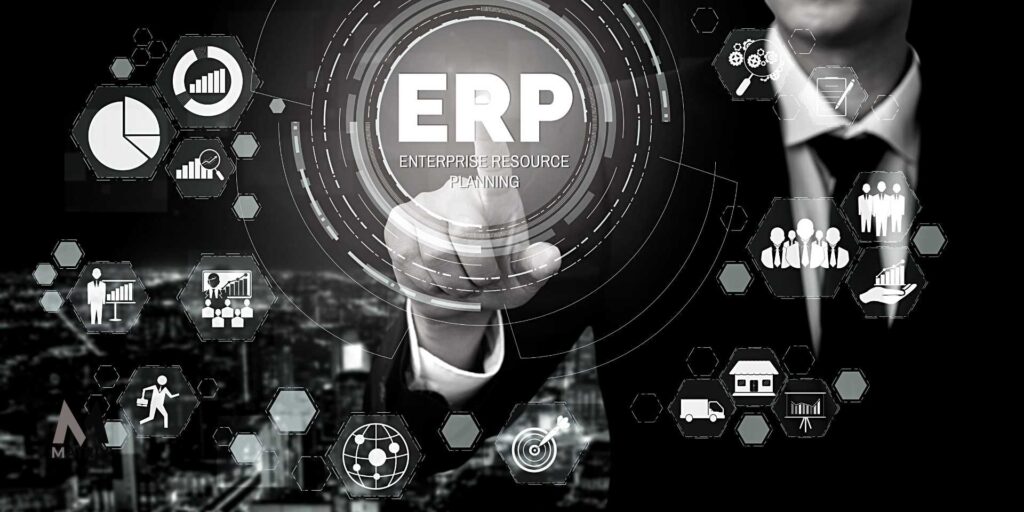ERP with CRM with a best-of-breed solution can work together to improve customer service
Learn how ERP with CRM with a best-of-breed solution can work together to improve customer service.
The prevailing paradigm has all businesses under review. Enable operating efficiencies that provide the flexibility to support changing business needs and priorities, improving your responsiveness, agility, and moment to value.
A CRM platform promises the consolidation of front-office software. HubSpot is a CRM platform that offers marketing, sales, customer service, web content management, and operations tools.
People are always asking us can CRM be integrated with ERP? Having implemented ERP systems for years, I get a lot of these lately. I had to ask why what was wrong with your CRM system in the ERP platform. They laughed and said you know.
I do know. I remember when HubSpot used Salesforce because they had to. Well, a lot of middle-market and enterprise management teams tell them it’s not worth changing. Give them my number. I’m just curious why a CEO or CFO might think that. It got to be a good reason.
But as the employment market tightens many companies are hiring younger talent that grows up with HubSpot. They own the small market and since 2006 with an eye on the enterprise market. And Matrix Marketing Group is helping them get there.
With thousands of useful tools out there, the challenge is figuring out how to get them to all work well together – without needing an IT team. But ERP and CRM differences are apparent. I loved this one this morning is salesforce an ERP or CRM? What do you think?
This is the challenge that a centralized platform like HubSpot solves. It allows you to connect all the tools your team uses – automatically, like MailChimp, Google Contacts, FullContact, NetSuite, SAP, and more. ERP and CRM examples of pissed-off sales reps are all over comments on the internet. Go see for yourself.
The “all-in-one” solution is dead. “Best of Breed” wins all the time. No system can do everything you want, nor should it. Remember WORD? I use about 20% of its capabilities yet pay for it all.
More and more businesses are integrating their ERP systems with CRM systems to improve communication and coordination between different departments. They can manage all their customer data in one place, leading to a more seamless and comprehensive customer experience.
Integrating these two systems can also help to improve customer service and support, marketing campaigns, and sales operations. So if you’re looking for a way to improve your business’s customer service, you should consider integrating ERP with CRM.
The article provides a good overview of the benefits of integrating ERP and CRM systems. It highlights the key areas where these systems can improve business operations. Learn how do ERP and CRM help a company like yours.
What about the CRM vs ERP vs SCM?
What is CRM software?

CRM software (Customer Relationship Management) is a software system that helps businesses better organize customer interactions and streamline repetitive tasks.
These systems are designed to accommodate many different departments within one business and give everyone in those departments more time to work on other important things.
ERP with CRM can work together to improve customer service.
What is the meaning of ERP?
ERP software (Enterprise Resource Planning) is a computer system that helps businesses better organize and manage their resources.
These systems are designed to accommodate many different departments within one business and give everyone in those departments more time to work on other important things.
ERP systems can help businesses improve communication and coordination between different departments, manage all their customer data in one place, and improve operations in several key areas.
If you’re looking for a way to improve your business’s efficiency, you should consider integrating ERP with CRM.
Why is it important to have a CRM connected to your ERP?

One of the biggest benefits of having a CRM connected to your ERP is that it can help to improve communication and coordination between different departments.
By integrating these two systems, businesses can manage all their customer data in one place, leading to a more seamless and comprehensive customer experience.
Integrating CRM with ERP can also help to improve customer service and support, marketing campaigns, and sales operations. So if you’re looking for a way to improve your business’s efficiency, you should consider integrating ERP with CRM.
ERP with CRM
What are ERP and CRM?
ERP (Enterprise Resource Planning) is a system that helps businesses manage their resources, including employee hours, inventory, and finances. It can track all aspects of a business, from production to sales to customer service.
ERP with CRM can work together to improve customer service.
CRM (Customer Relationship Management) is a system that helps businesses track and manage their interactions with customers. It can store customer data, track communications, and manage sales and marketing campaigns.
Both ERP and CRM are important systems for businesses, and integrating them can provide many benefits. By integrating ERP and CRM, businesses can:
- Manage all customer data in one place
- Improve communication and coordination between different departments
- Improve customer service and support
- Improve marketing campaigns
- Improve sales operations
ERP with CRM systems can provide a more comprehensive and seamless customer experience. If you’re looking for a way to improve your business’s customer service, you should consider integrating ERP with CRM.
How does ERP with CRM work together to improve customer service

Integrating ERP with CRM can help to improve communication and coordination between different departments, which can lead to a more seamless and comprehensive customer experience.
ERP with CRM can also help to improve customer service and support, marketing campaigns, and sales operations. So if you’re looking for a way to improve your business’s customer service, you should consider integrating ERP with CRM.
Benefits of integrating these two systems (ERP + CRM)
Integrating ERP and CRM systems can provide many benefits for businesses. ERP with CRM can work together to improve customer service.
By integrating these two systems, businesses can:
1. Manage all customer data in one place – By integrating ERP and CRM, businesses can manage all their customer data in one place. This can help to improve communication and coordination between different departments, leading to a more seamless and comprehensive customer experience.
2. Improve communication and coordination between different departments – By integrating ERP and CRM, businesses can improve communication and coordination between departments. This can lead to a more coordinated and streamlined customer experience.
3. Improve customer service and support – By integrating ERP and CRM, businesses can improve customer service and support operations. This can help to improve customer satisfaction and loyalty.
4. Improve marketing campaigns – By integrating ERP and CRM, businesses can improve their marketing campaigns. This can help to increase sales and grow the business.
5. Improve sales operations – By integrating ERP and CRM, businesses can improve their sales operations. This can lead to increased efficiency and more successful sales outcomes.
Improve customer service and support – By integrating ERP and CRM, businesses can improve customer service and support operations. This can help to improve customer satisfaction and loyalty.
Integrating ERP with CRM can help businesses manage all their customer data in one place, improve communication and coordination between different departments, and improve marketing campaigns, sales operations, and customer service and support.
By integrating these two systems, businesses can provide a more comprehensive and seamless customer experience. If you’re looking for a way to improve your business’s customer service, you should consider integrating ERP with CRM.
Challenges in implementing a best-of-breed CRM with ERP

The greatest challenge to implementing a best-of-breed CRM with ERP is the integration.
It requires significant changes in company culture, structure, and process throughout product development and customer experience cycles to link CRM data and processes to be successful.
Best-of-breed CRM solutions should provide an easy migration path from systems such as Salesforce by making it possible for users to leverage their knowledge of these packages without starting afresh with new programs.
ERP systems are often inflexible and difficult to change, so businesses should ensure that the CRM system they choose can adapt to their needs.
It is also important for businesses to have a clear idea of what they want to achieve from integrating their ERP and CRM systems and how this will benefit their customers.
The greatest challenge to implementing a best-of-breed CRM with ERP is the integration. It requires significant changes in company culture, structure, and process throughout product development and customer experience cycles to link CRM data and processes to be successful. Best-of-breed CRM solutions should provide an easy migration path from systems such as Salesforce by making it possible.
Another challenge that can arise when transferring between systems is trust – customers may not want what information they give going into another system as this might result in unfavorable outcomes, i.e., flooding or spamming contacts; however, companies need to keep in mind the fact that CRM data is only as good as it is updated and fresh.
ERP systems are often inflexible and difficult to change, so businesses should ensure that the CRM system they choose can adapt to their needs. It is also important for businesses to have a clear idea of what they want to achieve from integrating their ERP and CRM systems and how this will benefit their customers. Doing so can be difficult, but careful planning can be well worth the effort.
When looking for a best-of-breed CRM to integrate with your ERP system, you must find one that meets all your needs. The CRM should be easy to use, have all the features you need, and be able to integrate with your ERP system without too much difficulty. It’s also important to find a CRM that will grow with your business, as your needs are likely to change over time.
If you’re looking for a way to improve your business’s customer service, you should consider integrating ERP with CRM. You can provide your customers with a more comprehensive and seamless experience that they will appreciate.
Solutions for overcoming challenges in the implementation of CRM with ERP
ERP and CRM systems are both essential for businesses today. However, integrating these two systems can be a challenge. Here are some solutions for overcoming the challenges of implementing CRM with ERP:
- Communication and Coordination: For the integration to be successful, all departments within the company must be aware of and understand how the new system will work. There needs to be good communication and coordination between different departments to ensure that everyone is on the same page and that the system is being used effectively.
- Training: Employees need to be trained on using the new system to get the most out of it. This includes not only training on how to use the system itself but also training on how to use it in conjunction with other systems that the company may already be using.
- Data Management: One of the benefits of integrating ERP and CRM is that all customer data can be managed in one place. However, this can also be a challenge if there is a lot of data and it needs to be sorted and organized properly. Businesses need to have a plan for how they will manage and organize customer data to make sure that it is easy to access and use.
- Compatibility: For the integration to be successful, both systems need to be compatible with each other. This means they need to have the same or similar features and functions to work together seamlessly.
- Customization: In some cases, it may be necessary to customize the ERP or CRM system to make it compatible with the other system. This can be a time-consuming and expensive process, but it may be necessary to achieve a successful integration.
- Maintenance: Once the integration is complete, it is important to keep both systems up-to-date and maintained to work together effectively. This includes regular updates and bug fixes to ensure that the system runs smoothly.
By addressing these challenges, businesses can successfully integrate ERP and CRM systems and reap the benefits of a more comprehensive and seamless customer experience.
Final thoughts on the benefits of an integrated system like ERP with CRM
The benefits of integrating ERP and CRM systems are many. By bringing these two systems together, businesses can improve communication and coordination between different departments, manage all customer data in one place, improve customer service and support, and much more.
In addition, the cost of implementing an integrated system is often lower than the cost of implementing separate ERP and CRM systems.
Businesses today need to be able to manage customer data effectively to provide a good customer experience. The integration of ERP and CRM systems allows businesses to efficiently and easily use them.
By overcoming the challenges listed above, businesses can successfully integrate these two systems and reap the many benefits.
ERP and Salesforce integrations
Salesforce is a customer relationship management (CRM) system that many businesses use to manage their customers. ERP is a system that businesses use to manage their finances and operations.
Integrating Salesforce with ERP can be a challenge, but many benefits to doing so.
One of the benefits of integrating Salesforce with ERP is that businesses can manage all their customer data in one place.
This includes customer contact information, purchase history, account status, etc. Having all this data in one place makes it easy for businesses to track and analyze customer behavior, which can help them improve their marketing campaigns and sales operations.
Enterprise ERP and HubSpot integrations
HubSpot is a popular marketing automation system that many businesses use to manage their marketing campaigns. Enterprise ERP is a system businesses use to manage their finances and operations. Integrating HubSpot with Enterprise ERP can be a challenge, but there are many benefits.
One of the benefits of HubSpot with Enterprise ERP is that businesses can more easily track website visits. Email opens and clicks, form submissions, and more. Having this data makes it easy for businesses to see how marketing campaigns work.
Another benefit of integrating HubSpot with Enterprise ERP is that businesses can automate their sales processes. This includes automating lead capture and qualification, sending automated emails and follow-ups, etc. Automating these processes can help businesses increase their sales efficiency and reduce the time it takes to close a sale.
Businesses today need to be able to manage customer data effectively to provide a good customer experience. The integration of HubSpot and Enterprise ERP allows businesses to do this efficiently and easily to use. By overcoming the challenges listed above, businesses can successfully integrate these two systems and reap the many benefits they offer.
ERP and Netsuite
Netsuite is a cloud-based ERP system that many businesses use to manage their finances and operations. Hubspot is a popular marketing automation system that many businesses use to manage their marketing campaigns. Integrating Netsuite with Hubspot can be a challenge, but there are many benefits.
One of the benefits of integrating Netsuite with Hubspot is that businesses can more effectively track and analyze customer behavior. This includes tracking website visits. Email opens and clicks, form submissions, and more. Having this data in one place makes it easy for businesses to see which marketing campaigns are working and which ones need improvement.
Another benefit of integrating Netsuite with Hubspot is that businesses can automate their sales processes. This includes automating lead capture and qualification, sending automated emails and follow-ups, etc. Automating these processes can help businesses increase their sales efficiency and reduce the time it takes to close a sale.
Netsuite is a cloud-based ERP system that many businesses use to manage their finances and operations.
Integrating Netsuite with Hubspot allows businesses to automate their sales processes and more effectively track and analyze customer behavior. Having this data in one place makes it easy for businesses to see which marketing campaigns are working and which ones need improvement. By overcoming the challenges listed above, businesses can successfully integrate these two systems and reap the many benefits they offer.
Matrix Marketing Group integrates CRM into various CRM and ERP platforms.
Matrix Marketing Group is a company that provides marketing and sales services to businesses. They have recently begun integrating CRM into various HubSpot CRM and ERP platforms.
One of the benefits of this integration is that businesses can track and analyze customer behavior more effectively. This includes tracking website visits, and email opens and clicks, form submissions, and more. Having this data in one place makes it easy for businesses to see which marketing campaigns are working and which ones need improvement.
Another benefit of this integration is that businesses can automate their sales processes. This includes automating lead capture and qualification, sending automated emails and follow-ups, and more.
What to Look for When Choosing an ERP/CRM Solution
When looking for an ERP/CRM solution, Matrix Marketing Group recommends considering the needs of your business.
Here are some things to look for:
- Ease of use: The system should be easy to use and navigate. It should also be easy to integrate with other systems your business uses.
- Functionality: The system should have all the features you need to manage your customer data effectively.
- Scalability: The system should be able to grow with your business. It should also handle the increasing amount of data as your business grows.
- Security: The system should be secure and protect your customer data from unauthorized access.
- Support: The system should have good customer support. There should be a helpdesk with knowledgeable staff who can help you with any problems.
Matrix Marketing Group is a company that provides marketing and sales services to businesses. They have recently begun integrating CRM into various HubSpot CRM and ERP platforms.
Conclusion and ERP with CRM can work together
The benefits of integrating ERP with Hubspot are many. With this integration, businesses can track and analyze customer behavior more effectively.
This includes tracking website visits, email opens and clicks, form submissions, etc. Having this data in one place makes it easy for businesses to see which marketing campaigns are working and which ones need improvement.
Another benefit of the integration is that companies can automate their sales processes. This includes automating lead capture and qualification, sending automated emails and follow-ups, and other tasks related to CRM or ERP systems.
Automating these processes helps businesses increase efficiency while reducing the time needed to close a sale due to automation efforts like lead generation software solutions.
How Matrix Marketing Group can help with HubSpot integrations with ERP
Matrix Marketing Group has a lot of experience integrating CRM into various HubSpot CRM and ERP platforms. They can help your business overcome the challenges of doing so and reap the many benefits that integration offers.
If you’re looking to integrate CRM into your HubSpot ERP or CRM platform, Matrix Marketing Group can help.
They have a lot of experience integrating these systems and can help your business overcome its challenges. Additionally, they can help you take advantage of the many benefits that integration offers. Contact Matrix Marketing Group today to get started!
General FAQs
Why does ERP integration with CRM matter?
ERP and CRM integration matter for several reasons. The main reason is that businesses need to track customer activity across multiple platforms to identify new leads and communicate effectively, including following up based on what people have done or not done with the first touchpoint, such as browsing around or filling out a form.
What are the different types of integrations that usually happen between CRM and ERP systems?
Three main integrations often occur between CRM and ERP systems: data, process, and functionality. Data integration occurs when the two systems share the same data pool, and process integration happens when the two systems share the same workflow. Functional integration happens when the two systems share common features.
What are some of the benefits that can be achieved through ERP/CRM integration?
Some of the benefits of ERP/CRM integration include improved customer service, increased sales efficiency, reduced costs, and better communication.
How can Matrix Marketing Group help with ERP/CRM integration?
Matrix Marketing Group is a company that specializes in helping businesses integrate CRM into their ERP and CRM platforms. They have a lot of experience in this area and can help your business overcome its challenges. Additionally, they can help you take advantage of the many benefits that integration offers. Contact Matrix Marketing Group today to get started!

